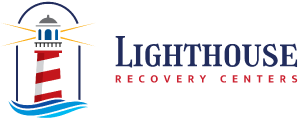10% of Americans clinically struggle with drug use. When walking down the street, every 10th person has gone through a substance use disorder. Unfortunately, the vast majority of them never receive treatment.
That’s why choosing to intervene today can be the saving grace in a loved one’s life. The medical, emotional, and psychological tools are available. For many, it’s just a matter of getting to a treatment center.
A substance abuse intervention can be the step needed that pushes a friend or family member to finally seek help.
Intervene Today
A substance abuse intervention is a meeting where folks appeal to their friend or loved one who is struggling with addiction. For those who are struggling with substance abuse disorders, it may be difficult to remember the important parts of life. An intervention can help them refocus.
With the advisement of professionals, family members can stage an intervention meeting. The goal of the intervention will typically be to encourage the person to seek treatment. This may be with a counselor, a support group, or at treatment centers.
Drug abuse and alcohol abuse are real, physical disorders. Many struggling with addiction may need medical professionals to help prevent dangerous outcomes when detoxing from the substance. Planning for immediate access to addiction support and medical intervention following the meeting is the safest option.
How Does Intervention Work?
Making a plan to stage an intervention for a loved one is important. Those who are there to help should be ready to present a cohesive front.
Take help from a professional intervention specialist. You can find an interventionist by getting in touch with addiction counselors and other mental health facilitators. Check with local substance abuse groups or local rehabilitation and treatment centers for recommendations.
You can also bring along a spiritual support person to work in tandem with the interventionist. A pastor or spiritual counselor can offer external, unbiased support for all involved.
When you have a plan and the emotional support, agree to meet somewhere you’ll be able to calmly speak with the person struggling with addiction. Be prepared for pushback and anger.
The person with addiction should not know ahead of time that the meeting is occurring or what it is about. Part of the intervention is to confront them with reality when they do not have the choice to backtrack into denial immediately.
That said, being as gentle but firm as possible with the person will help an intervention be more successful.
How Can You Assure a Successful Intervention?
When confronting a loved one, remember to offer compassion and understanding, while explaining explicitly the effect their behavior has had. Offer up specific moments from shared histories where their drug or alcohol use has hurt someone’s feelings, endangered someone or their property, or cost money unexpectedly.
A good intervention is one that sets goals and agreed-upon outcomes that can be used to hold accountability. However it is recommended the person with addiction seeks help, they must know what to expect if they fail to seek and complete treatment.
This may mean choosing consequences that won’t feel good, such as refusing to financially support the person or making them find a new place to live. However, without accountability, the person will never have to face the truth of the situation. Compassionately supporting them to recognize the truth is necessary.
How to Support a Loved One’s Treatment
Supporting the person and not the addiction can be difficult. If the person denies that they have a problem or claims that detoxing from the substance does them more harm than good, it is hard to stop enabling their substance-seeking behavior.
Getting a loved one into treatment is the most loving thing someone can do. While not responsible for the person with addiction’s actions, being a supportive, compassionate family member who has faith in their ability to turn their life around is the best thing possible.
The Family Role in Recovery
When it comes to addiction, family can be as much of a boon as a stumbling block in the treatment and recovery process. When families are able to encourage and show compassion to someone who is struggling at an intervention, this can help.
Unhealthy family dynamics and enabling behaviors may have made it possible for the person suffering from addiction to continue using within the family unit. For this reason, it may be necessary for the whole family to learn healthy habits and recover together.
Family members may also struggle with guilt and shame about how things got as bad as they did. However, it is important to remember that you are now choosing the best possible thing for your loved one by helping them to get treatment.
Expressing honest emotions at the intervention about how the family helped or hurt the person who is struggling can be beneficial for everyone.
How Can You Help after Recovery?
Part of an intervention is making plans for how everyone will be held accountable during recovery. This means family as well. Planning for recovery puts everyone’s best foot forward in coping with addiction.
While a loved one is in rehab, this time can be used to learn about recovering, relapses, tips and advice for sober living, and researching insurance coverage for further treatment.
It’s also a time to take care of yourself. No doubt you have spent much energy coping with a loved one’s addiction. Use this breather to build yourself up so you can continue to be an excellent support while they take ownership of their life after an intervention.
Intervene Today So They Can Live Tomorrow
Planning an intervention may feel overwhelming. But if you don’t intervene today, your loved one may not be here tomorrow. Get the professional and emotional support you need. Don’t be afraid to tell the truth or be “real” with your loved one.
An intervention is an urgent effort to save a life. Treat it as such.
But you don’t have to go it alone. Get in touch with Lighthouse Recovery Centers. We empower all to overcome addiction, including families planning interventions. See how we can assist you today.

